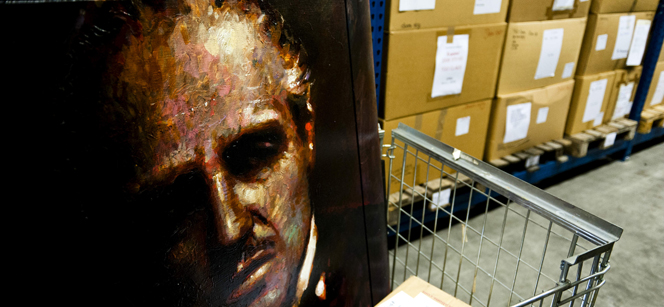


Accessibility tools
Service tools
Language selector
Navigation path
Left navigation
Additional tools
12 March 2012.
Published in Dagens Nyheter (SE), Jyllands-Posten (DK), Fakt (PL) and others

Organised crime in Europe produces multi-billion profits every year. We need to make it easier for the police to hit mafia groups where it really hurts – by going after their profits.
What do a football field, a riding school, an air humidifier for cigars and millions in cash have in common? They are all assets that police have confiscated from criminals around Europe over the past few years. Increasingly, borderless organized crime turns its profits into houses, cars or luxury items, or hides them in other EU countries. At present, law enforcement agencies are having a hard time keeping up. The rules for going after criminals' assets differ between countries, which makes the confiscation process unnecessarily complicated and ineffective, both home and abroad. Today, I am proposing a set of laws at EU level to rectify the situation and make it easier for the police to hit mafia groups where it really hurts – by going after their profits.
Organised crime in Europe produces multi-billion profits every year. The global drug trade alone generates almost 240 billion euros in revenues every year - more than the big European multinationals Nestlé, Statoil and Carrefour combined. The revenue from these activities - and from human trafficking, arms trafficking, fraud and other crimes - goes straight into the pockets of criminals or are turned into material assets. Proceeds are in turn used to fund more criminal activity, hence damaging Europe's legal economy time and time again. Not only are European citizens deprived of tax money which could have been invested in public services such as health care or schools, but economic growth is also be affected, since markets are distorted and legal investments shut out. In times of crisis, when we have to get Europe's battered economy back on its feet, it is even more important to plug the loop holes in our legislation which criminals take advantage of.
As European Commissioner, this is part of a broader work of protecting our legal economy. Last year I presented a package of measures to fight corruption, which, among other things, will identify adverse trends and good practices in Member States and identify weak points, including at EU level. Better cooperation between authorities across borders is crucial, especially as some Member States have made good progress in their efforts to weaken organised crime. In the UK for example, over the course of a year, police recovered assets worth nearly 150 million euro from criminals. In Italy, the amount was over 800 million euro.
Even so, the real gains from crime are estimated to be a hundred times bigger. We are seizing only but a fraction of their revenues. Within the EU, Member State' authorities still operate under very different conditions when it comes to, for example, freezing assets in court and linking assets to criminal activity.
Only with the right tools can the police and the judiciary tackle the problem effectively, all across Europe. Today, the European Commission is presenting a proposal for legislation that will enable authorities to operate under the same conditions, whether they are fighting crime in Sweden, Bulgaria or Spain.
Once the new rules are in place, criminal assets – and not least, money – can be quickly frozen when prosecutors fear that they would otherwise disappear abroad. It will also become easier to confiscate assets that are not necessarily directly linked to a specific crime, but rather linked to a person's criminal activities. In addition, criminals will no longer be able to transfer assets to a friend or a relative and expect that they are out of reach from police.
That said, confiscations will never be allowed to be carried out arbitrarily, or in violation of those fundamental rights that we have established all across Europe. Among the current proposals are measures to ensure that individuals' right to a presumption of innocence, and the right to property, are respected.
Enabling police authorities to do their work more effectively will mean that criminals' assets can be used for the benefit of citizens. There are numerous examples from the different corners of Europe of how criminal assets can be reinvested back into society. When the Italian police cracked down on Italian mafia boss Bernardo Provenzanos' operations in Sicily, his property was converted into a museum. It also sells agricultural products from the land which used to belong to the mob, and profits are reinvested back into running the museum. And in Naples, a centre for vulnerable young people has been set up in what used to be a mafia hide-out. Criminals' assets may ultimately be converted into support for victims or into a better quality of services for citizens. This is why it is so important to ensure that there is indeed no safe haven for organised crime.
Today's proposal by the European Commission is now entering the process of becoming EU law. I hope that member states' representatives in both the European Parliament and the Council of Ministers will help to get the rules in place as soon as possible; it is our common responsibility to ensure that crime does not pay.